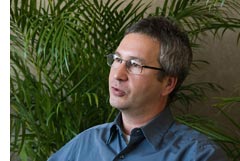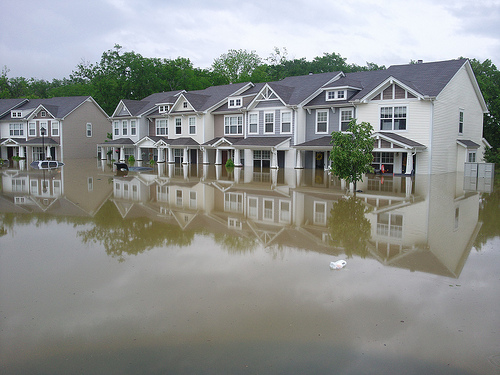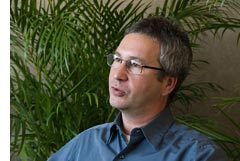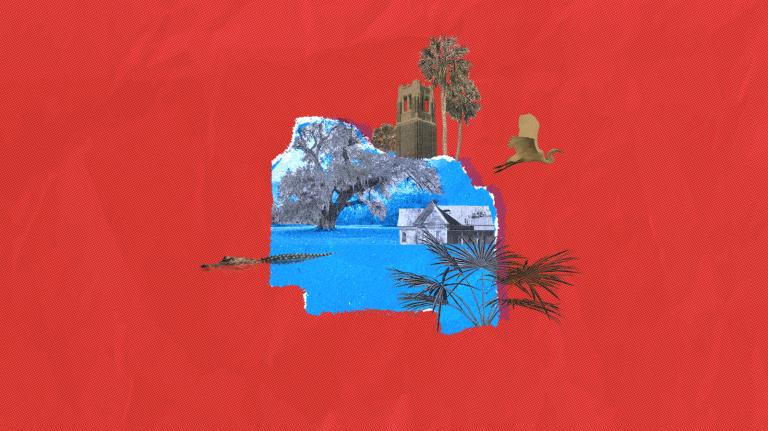 Dmitry Orlov“Really, there’s no one at the helm now,” Dmitry Orlov says nonchalantly. We are talking about the economic crisis and the way that the destructive system of our economy operates without anyone really leading it. It’s a perfect statement from a man who has traded in his house and car to live on a sailboat full-time, with an excellent argument for the safety and sustainability of the water-based nomadic existence to back up his decision.
Dmitry Orlov“Really, there’s no one at the helm now,” Dmitry Orlov says nonchalantly. We are talking about the economic crisis and the way that the destructive system of our economy operates without anyone really leading it. It’s a perfect statement from a man who has traded in his house and car to live on a sailboat full-time, with an excellent argument for the safety and sustainability of the water-based nomadic existence to back up his decision.
Not much seems to ruffle Orlov, who describes his work as the “comparative theory of superpower collapse.” Russian-American and fluent in both cultures, Orlov has made his name on his blog ClubOrlov with beautifully reasoned comparisons of the collapse of the Soviet Union in the 1990s and the coming collapse of the United States (already underway, depending on how you view the recent economic crisis).
Orlov is a collapse theorist’s collapse theorist. He isn’t out to impress anyone with the facts behind peak oil or climate change — he leaves that to colleagues like Richard Heinberg and James Howard Kunstler. You can read him or leave him — he doesn’t believe people are persuaded by logic or evidence.
“Contemporary mainstream culture and unbridled growth … is not now and was never a rational proposition. It is the realization of dark, irrational, self-destructive urges, which were programmed into us through some evolutionary accident, and which are now, and for a short time longer, being given their fullest expression by the availability of cheap and abundant energy,” he explains in one of his essays, “The Despotism of the Image.”
It’s not cheerful material. What makes Orlov more interesting than the many gloomy and over-credentialed scientists, sociologists, economists, and environmentalists producing a steady stream of books about climate change, peak oil, and economic collapse is his way of thinking things through with cool logic and telling detail.
For example, in “Thriving in the Age of Collapse,” Orlov describes the predicament and options of several typical Americans, including a middle-aged couple named Mike and Mary, with grown children:
Mike and Mary should brace themselves for some bad news. The first piece of bad news is that their retirement is going to be cancelled … If Mike and Mary’s plan is to live out their golden years in a suburban house, driving to and fro, then they clearly do not have a plan and will gradually lose control of their lives. Almost immediately, their house will become too expensive to heat. Next, it will become impossible for them to continue driving, due to gasoline rationing and shortages. Next, electricity will be cut off. For a time, they may continue to be supplied with food by some community-based service.
At some point, if they are lucky, they will be evacuated to some hastily organized compound — most likely a dormitory or a barrack with cots and a television set in the corner, which is mostly off due to lack of electricity, and plenty of blank walls to stare at.
Just when you are thinking Orlov is heartless and a bit smug in describing the futures of most of us hapless Americans, he switches to a brighter mode. Mike and Mary might very well rise to the occasion of the crisis, putting their career skills as a teacher and businessman to work in their community by creating a school in their home, negotiating a rainwater-capture system for their neighborhood, and organizing rent strikes against absentee landlords. Orlov’s faith in human resilience is variable, but present.
At his best, Dmitry Orlov paints very credible visions of the future, many of them based on his observations of Russians in their time of crisis. Like almost every European I meet these days, he presumes that we all accept that Americans are foolish, coddled, and naive. (I usually just duck my head and nod humbly.) It’s worth the shaming to read some of the gems of his observations, like this one, from “Social Collapse Best Practices“:
My grandfather had a donkey while he was living in Tashkent in Central Asia during World War II. There was nothing much for the donkey to eat, but, as a member of the Communist Party, my grandfather had a subscription to Pravda, the Communist Party newspaper, and so that’s what the donkey ate. Apparently, donkeys can digest any kind of cellulose, even when it’s loaded with communist propaganda. If I had a donkey, I would feed it the Wall Street Journal.
Orlov has written two books — Reinventing Collapse, which recently won a silver medal Independent Publishers Award (watch for a second edition in the spring), and the samizdat Hold Your Applause. Most of his essays can be found on his blog ClubOrlov. He says his future includes more writing, and — as soon as his sailboat is properly refitted — setting out on a sea voyage with no set point of return. He does not seem worried.



